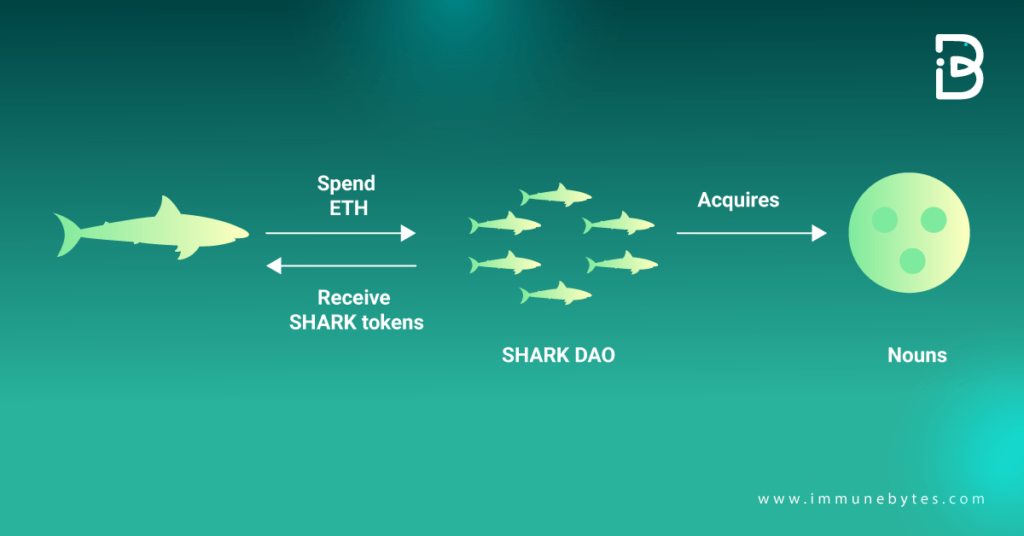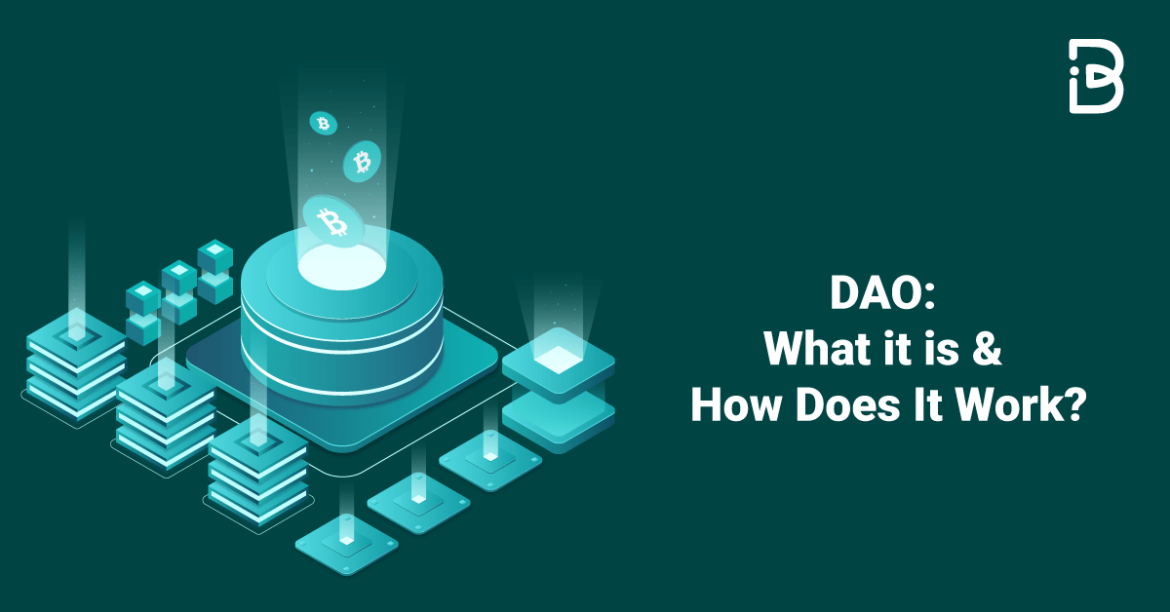DAO stands for Decentralized Autonomous Organizations. As the name suggests, it has no central authority; DAOs operate with the voting power of the token holders who cast their votes collectively.
This organization emerges from a legal structure wherein each of the members shares a common goal to act in the organization’s best interests. It has been popularized by Cryptocurrency enthusiasts and is used in the process of decision-making in blockchain technology.
Every activity and vote is posted on the blockchain, and this is how everything can be viewed publicly. This is why security becomes an indispensable part of this which cannot be overlooked.
Does it sound too overwhelming to understand? Let’s make it easier for you. This blog will walk you through a brief about Decentralized Autonomous Organizations, including what it is and how they work. So, without any further ado, let’s get started.
What Are DAOs?
Table of Contents
We all are well aware that one of the most important characteristics of digital currency is that it is also known as decentralized finance. Obviously, there is not a single institution that controls it; rather, it is divided among a large number of computers, networks, and nodes.
The decentralized status of these currencies surely gives them a strong level of privacy and security. This is what gave the developers the idea to think about decentralized autonomous organizations. They are built to encourage control and management over a structure akin to a corporation.
A DAO’s lack of a centralized power source is its fundamental feature; instead, its participants and leaders work together to serve as the organization’s governing body.
Additional Resource: DAO Maker
How Does Dao Work?
With the help of smart contracts, a core community team establishes the rules. These smart contracts spell out the basic rules of operation for the DAO. They are clear, easy to verify, and open to public auditing so that any potential member may completely comprehend how the protocol works at every stage.
After the rules have been written on the blockchain, funding is the next step. They need to figure out from where they can receive funding and governance tokens. They achieve it through token insurance. It is a method by which the protocols sell tokens to raise funds as well as to make the treasury complete.
Holders of tokens receive certain voting rights in exchange for their currency, typically based on their holdings. The DAO can be deployed after funding is finalized.
At this point, the only way to alter the code is to obtain an agreement among the voting members after it has been deployed into production. This means that the community of token holders alone has the right to change its rules; no other party is allowed to do so.

How To Get Involved?
Once you find a project that interests you, it is easy to get directly involved. Irrespective of whichever Decentralized Autonomous organization you are in, one thing that must be kept in mind is that every DAO operates with the same purpose. Therefore, firstly, you need to figure out what its function is.
Understanding the kind of voting privileges offered to token holders, and the kinds of proposals at risk is crucial for them to focus on technical governance.
For example- In UniSwap, With this strategy, Voting is available for token owners to decide how much of the fees the protocol earns should be shared among themselves. In some protocols, like Compound, token owners can elect to allocate these protocol fees to system updates and problem repairs.
Anyone who is ad hoc interested in the project or a freelancer can join and be paid for their labor through the grant-funded projects.
For the others, the emphasis is more on treasury pooling and allocation than on control over the technical components of the protocol.
For instance, SharkDAO operates largely to enable the pooling of individual token holders’ assets in order to purchase expensive rare NFTs. This strategy offers individuals brand-new chances to benefit from the strength of a pool of resources that are used collectively.
There has to be transparency within it, and this becomes one of the greatest takeaways. All the details of every proposal are available readily, and the history of voting is recorded continuously. Not only this, but even the voting record of every token holder can be viewed.
People with an entrepreneurial mindset can freely submit proposals to help lead the future development of a protocol. They frequently ask the community to develop interesting ideas through grant-funded projects.
Participation in them varies in intensity. You have the option to join their Discord and work on actual projects where you are paid for your participation; you may choose to swap into governance tokens and pay attention to Snapshot votes, and you can even invest in any of your interests by networking at conferences.
List Of Some Major DAOs
Now that you have a decent idea about this concept, it would be beneficial to get an insight into some of the most popular ones operating in the world today.
These include:
Moloch
This OG Decentralized Autonomous Organization is responsible for awarding grants to advance the Ethereum blockchain.
DAOhaus
A no-code platform is used to launch and run them. The community owns and operates it.
Bankless
Are you someone who is interested in communicating the Web3 word and in making the masses of your content? Then, this media-centric DAO will surely intrigue you.
Maker
Voting on modifications to the Maker protocol is one way to participate in governance for the technology that launched the first impartial stable coin in history, DAI.
Opolis
This member-owned digital employment cooperative caters to independent workers with benefits and shared services. If you care deeply about the nature of the workplace of the future and want to influence it, then you can join it.
RaidGuild
This Web3-based DAO with a strong service component emerged from the MetaCartel network. The guild is searching for top talent to keep killing product demons, so if you’re wanting to offer up your programming, marketing, or design abilities, they would appreciate it.
Proof of Humanity
The distribution of Universal Basic Income (UBI) tokens to certified humans on-chain is done through this Sybil-resistant registry of humans using social verification and Kleros’ courts. Start with this democratic, Decentralized, Autonomous Organization if you want to join the justice revolution.
Conclusion
A DAO’s smart contract is its structural foundation. The agreement holds the group’s funds and outlines the organization’s policies. Once the contract has gone live on Ethereum, only a vote will allow for changes to the terms. Anything that is attempted that is not permitted by the logic and principles of the code will fail.
Furthermore, since the smart contract also establishes the treasury, no one is permitted to utilize the funds without the consent of the group. They are, therefore, not dependent on a centralized authority. Instead, decisions are made jointly by the group, and when votes are successful, payments are immediate issues.
Hackers were able to steal $50 million worth of Ethereum from the DAO in June 2016! So, it is very important to know about Decentralized Autonomous Organizations and how they work to remain safe from hackers. Talk to us!

